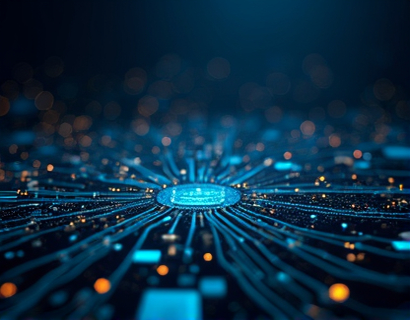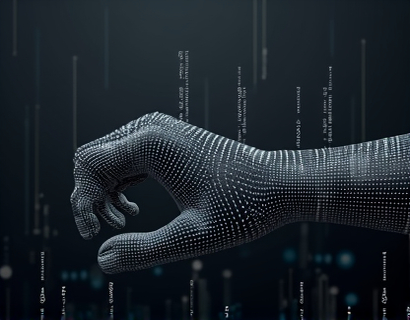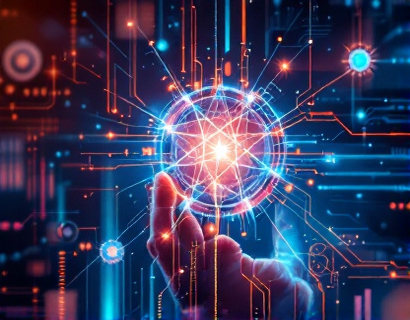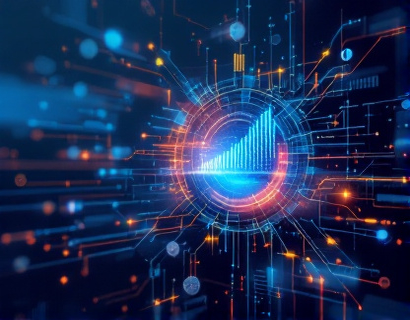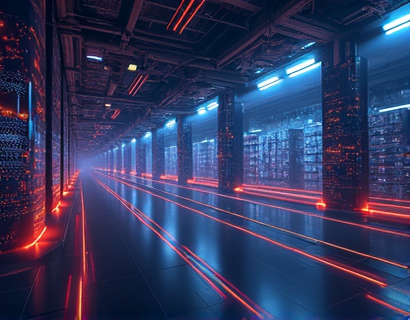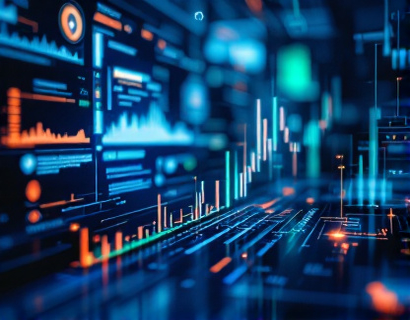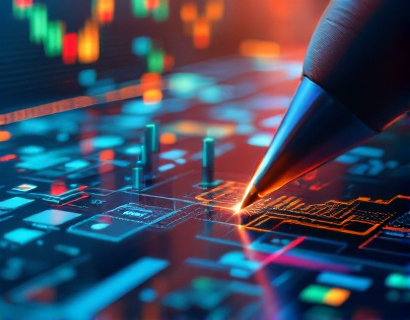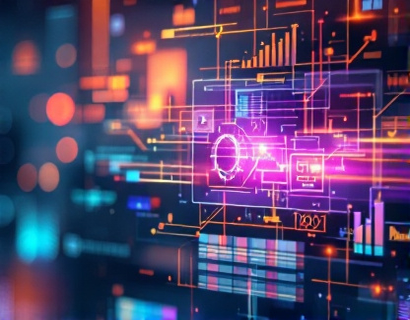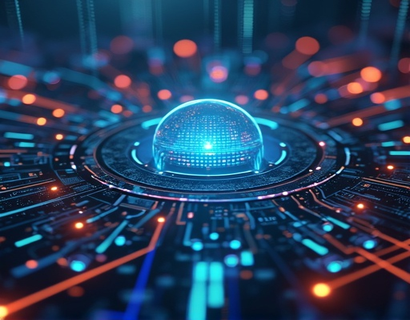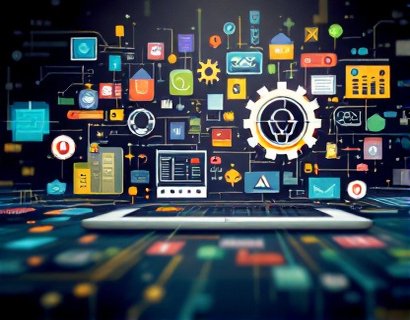Unlocking the Future: Harnessing AI and Crypto for Next-Gen Digital Transformation
The digital landscape is undergoing a profound transformation, driven by the synergistic powers of artificial intelligence (AI) and cryptocurrency. This convergence is not just a technological curiosity but a pivotal shift that is redefining how we interact with digital services, manage data, and secure transactions. For tech innovators and early adopters, understanding this intersection is crucial for staying ahead in a rapidly evolving market. This article explores the frontiers where AI and crypto meet, offering insights into how these technologies are reshaping the future of digital transformation.
The Synergy of AI and Cryptocurrency
At its core, the fusion of AI and cryptocurrency leverages the strengths of both domains to create more secure, efficient, and intelligent digital ecosystems. AI brings computational power, data analysis capabilities, and adaptive learning to the table, while cryptocurrency provides a decentralized, secure, and transparent method for transactions and data storage. Together, they form a powerful duo capable of revolutionizing various sectors, from finance and healthcare to supply chain management and beyond.
Enhanced Security Through Blockchain and AI
One of the most significant benefits of combining AI with cryptocurrency is the enhancement of security measures. Blockchain technology, the backbone of most cryptocurrencies, offers a decentralized ledger that is inherently resistant to tampering. AI can further bolster this security by detecting and mitigating threats in real-time. Machine learning algorithms can analyze patterns and identify anomalies, predicting and preventing fraudulent activities before they occur. This synergy ensures that transactions are not only secure but also transparent, building trust among users.
For instance, AI-driven monitoring systems can continuously scan blockchain networks for suspicious activities, such as unusual transaction volumes or patterns that deviate from the norm. By integrating these systems, cryptocurrency platforms can maintain a high level of security without compromising on user privacy. This dual-layer security approach is essential in an era where cyber threats are becoming increasingly sophisticated.
Smart Contracts and Automated Processes
Smart contracts, self-executing contracts with the terms directly written into code, are another area where AI and cryptocurrency intersect. These contracts automatically enforce and execute agreements when predefined conditions are met, eliminating the need for intermediaries and reducing transaction costs. AI can optimize smart contracts by analyzing vast amounts of data to identify the most efficient and secure configurations.
For example, in supply chain management, AI can predict demand and optimize inventory levels, while smart contracts ensure that payments are made automatically upon delivery. This seamless integration reduces delays and errors, enhancing overall efficiency. Moreover, AI can continuously learn from past transactions to improve future contract designs, making the system more robust and adaptable.
Personalized User Experiences
The combination of AI and cryptocurrency also opens up new possibilities for personalized user experiences. AI algorithms can analyze user behavior and preferences to tailor services and recommendations, creating a more engaging and relevant digital environment. In the context of cryptocurrency, this means that users can enjoy customized financial tools and services that cater to their specific needs.
For instance, a cryptocurrency wallet powered by AI can learn a user's spending habits and suggest optimal times for transactions to minimize fees or maximize returns. It can also provide real-time market insights, helping users make informed decisions about when to buy or sell. This level of personalization not only enhances user satisfaction but also increases the adoption and utility of cryptocurrency solutions.
Decentralized Finance (DeFi) and AI
Decentralized Finance (DeFi) is a rapidly growing sector that exemplifies the potential of AI and cryptocurrency combined. DeFi platforms offer a range of financial services, including lending, borrowing, and trading, all operated on blockchain networks. AI can significantly enhance these services by providing predictive analytics, risk assessment, and automated trading strategies.
AI algorithms can analyze market trends and historical data to forecast price movements, helping users make better investment decisions. Additionally, AI can manage risk by continuously monitoring portfolio performance and adjusting positions to minimize losses. This level of automation and intelligence is particularly valuable in the volatile crypto market, where timely decisions can mean the difference between profit and loss.
Challenges and Considerations
While the potential of AI and cryptocurrency is vast, there are several challenges and considerations that must be addressed. One of the primary concerns is regulatory compliance. As governments around the world begin to recognize and regulate cryptocurrency, ensuring that AI-driven solutions comply with these regulations is crucial. This requires a deep understanding of both legal frameworks and technological capabilities.
Another challenge is the technical complexity involved in integrating AI with blockchain systems. Developing robust and scalable solutions that can handle the high transaction volumes and computational demands of blockchain networks is no small feat. Continuous research and development are necessary to overcome these technical hurdles and create seamless, user-friendly applications.
Ethical Considerations
Ethics play a vital role in the development and deployment of AI and cryptocurrency solutions. Issues such as data privacy, algorithmic bias, and the environmental impact of blockchain mining must be carefully considered. AI systems must be designed to respect user privacy and avoid biased decision-making, ensuring that the benefits of these technologies are accessible to all.
Moreover, the environmental impact of cryptocurrency, particularly proof-of-work blockchains, has been a point of contention. Transitioning to more sustainable consensus mechanisms, such as proof-of-stake, and leveraging AI to optimize energy usage can help mitigate these concerns. Ethical considerations are not just moral imperatives but also essential for building long-term trust and adoption.
The Future Landscape
As AI and cryptocurrency continue to evolve, the future landscape promises even more innovative applications and integrations. One area of excitement is the development of decentralized artificial intelligence (DAI), where AI models are trained and operated on decentralized networks. This approach can enhance data privacy, reduce central points of failure, and democratize access to advanced AI capabilities.
Another promising direction is the integration of AI with other emerging technologies, such as the Internet of Things (IoT) and 5G networks. AI can process and analyze the vast amounts of data generated by IoT devices, while 5G provides the necessary bandwidth and low latency for real-time applications. Together, these technologies can create smart, interconnected systems that transform industries and daily life.
Conclusion
The convergence of AI and cryptocurrency is not just a technological trend but a fundamental shift in how we approach digital transformation. By harnessing the power of these technologies, we can build more secure, efficient, and intelligent digital ecosystems. For tech innovators and early adopters, embracing this synergy is key to staying competitive and shaping the future. As we continue to explore and develop these cutting-edge solutions, the possibilities are endless, promising a brighter and more connected digital world.








